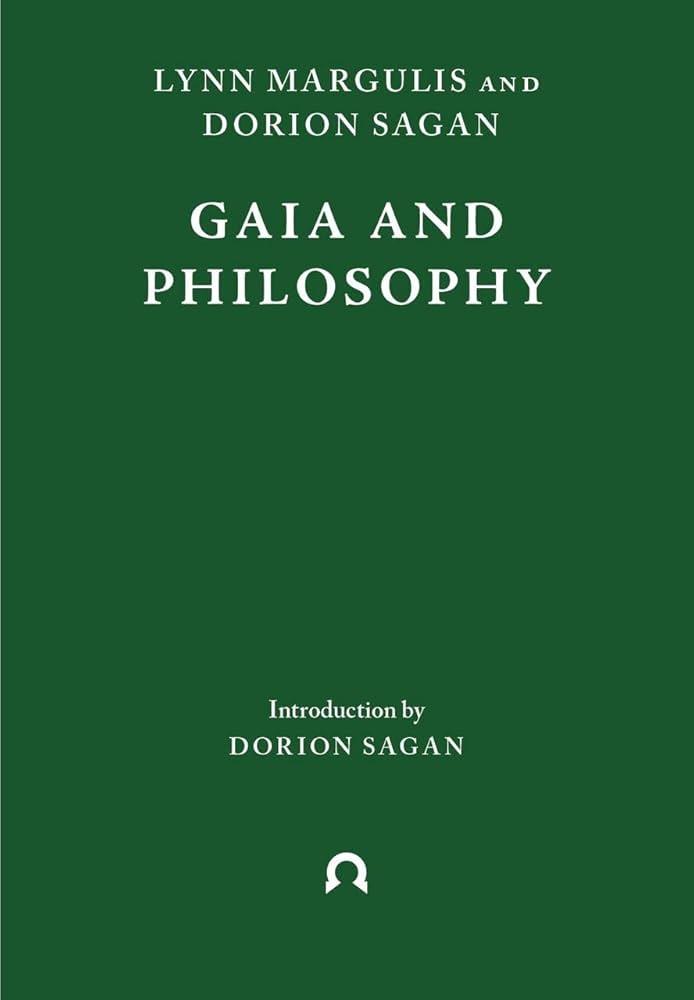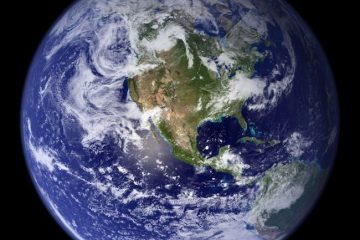Table of Contents
- Exploring the Foundations of Gaia Hypothesis Philosophy
- Interconnectedness of Life and Earth: A Deep Dive
- Ethical Implications of the Gaia Hypothesis
- Practical Applications in Environmental Stewardship
- Rethinking Humanitys Role in Nature through Gaia Philosophy
- Q&A
- Concluding Remarks

Exploring the Foundations of Gaia Hypothesis Philosophy
The Gaia Hypothesis is a thought-provoking philosophical framework that conceptualizes Earth as a self-regulating system. Developed by scientist James Lovelock in the 1970s, this idea posits that all living organisms and their inorganic surroundings interact in a way that maintains the conditions for life. This holistic view encourages a reevaluation of our relationship with the planet and emphasizes the interconnectedness of all its components, urging us to consider nature not merely as a resource to be exploited but as a complex, living entity.
At the core of Gaia philosophy lies the belief in mutualism and interdependence among species and ecosystems. As we explore this concept further, several key principles emerge:
- Co-evolution: Organisms adapt to their environments while simultaneously shaping it.
- Feedback loops: Natural processes work together to regulate ecosystems, ensuring stability and resilience.
- Homeostasis: The Earth maintains balance through biological and physical interactions among its systems.
This philosophical perspective also invites us to reflect on ethical considerations regarding environmental stewardship. The Gaia Hypothesis implores us to engage with issues such as climate change, biodiversity loss, and resource depletion from a lens that values sustainability and ecological justice. By recognizing Earth as a living system, we are encouraged to adopt practices that not only protect but also restore the natural world. In doing so, we align ourselves with a more holistic approach to life, fostering a deeper sense of responsibility for the planet and future generations.
Interconnectedness of Life and Earth: A Deep Dive
The notion of interconnectedness underscores a fundamental principle: all living beings and the Earth’s systems are inextricably linked. This relationship is not merely a philosophical idea but also a reflection of ecological truths. From the tiniest microorganisms in the soil to the vast expanses of the ocean, life is a tapestry woven with multiple threads, illustrating the delicate balance necessary for sustainability. Recognizing this holistic web encourages us to appreciate how each organism, including humans, plays a crucial role in the health of the planet.
At the heart of this philosophy lies the recognition that human activity is not separate from nature but a part of it. Our choices ripple through ecosystems, affecting climate, biodiversity, and the well-being of all life forms. For instance, deforestation, pollution, and climate change disrupt vital functions of ecosystems, leading to a decrease in biodiversity that can trigger a cascade of adverse effects. Thus, understanding our interconnectedness is key to fostering practices that support rather than undermine the systems we inhabit.
Furthermore, the interconnectedness of life invites us to shift our perspective from one of dominance over nature to one of stewardship. To embody this mindset, we can adopt actions that reflect our commitment to sustainability. Consider these practical steps:
- Engaging in conservation efforts for local habitats
- Supporting sustainable agriculture that respects biodiversity
- Advocating for policies that protect endangered species and ecosystems
Such initiatives not only help preserve the intricate balance of life on Earth but also enhance our own quality of life, illustrating that the health of the planet and humanity is profoundly interconnected.

Ethical Implications of the Gaia Hypothesis
The Gaia Hypothesis, which posits that the Earth functions as a self-regulating system, raises several ethical implications that invite contemplation about our relationship with the planet. As we explore this interconnectedness, it becomes apparent that our actions have consequences that ripple through the environment. The ethical considerations include the need for responsibility in resource management, acknowledging that depleting natural resources not only affects ecosystems but jeopardizes future generations. This recognition compels us to adopt a stewardship perspective, viewing ourselves not merely as inhabitants of the Earth but as caretakers of a complex and living system.
Moreover, embracing the Gaia Hypothesis encourages us to reconsider traditional views on anthropocentrism—where human interests are deemed paramount. Instead, it promotes a more ecocentric viewpoint that emphasizes the intrinsic value of all life forms. Such a shift incites ethical discussions around issues like biodiversity conservation, climate change, and ecological balance. It accentuates our moral obligation to protect the environment, suggesting that every species plays a role in the Earth’s biosphere, thereby contributing to the health of the planet as a whole.
To effectively navigate these ethical challenges, it is crucial to integrate the principles of sustainability into our decision-making processes. This involves a collective commitment to practices that support ecological integrity, such as:
- Reducing waste and promoting recycling
- Supporting renewable energy initiatives
- Advocating for policies that protect natural habitats
- Encouraging local and sustainable agriculture
By fostering these values, we can create a more harmonious relationship with the planet, allowing for a vibrant and sustainable future. This collective consciousness is not just an ethical obligation; it is integral to ensuring the continuation of life as we know it.

Practical Applications in Environmental Stewardship
The Gaia hypothesis offers a profound framework for understanding how to approach environmental stewardship. This philosophical perspective highlights the interconnectedness of all living organisms and their environments, suggesting that the Earth functions as a single self-regulating system. Practitioners of environmental stewardship can harness this concept to foster sustainable practices that promote the health of our planet. By viewing ecosystems as intricate networks of relationships, we can develop strategies that prioritize biodiversity and ecological resilience, ensuring that all components of these systems thrive.
- Sustainable Agriculture: Implementing techniques like permaculture and crop rotation helps maintain soil health and promote local biodiversity.
- Urban Green Spaces: Creating community gardens and urban forests not only enhances local biodiversity but also improves air quality and provides recreational areas for residents.
- Clean Energy Solutions: Transitioning to renewable energy sources such as solar and wind power reduces carbon footprints and mitigates climate change effects, supporting the Gaia philosophy of harmony.
Incorporating the Gaia hypothesis into environmental education can yield remarkable results. By teaching individuals about their role within the Earth’s systems, community initiatives can empower citizens to take responsibility for their local ecosystems. Encouraging practical applications such as recycling, conservation, and waste reduction fosters a culture of stewardship rooted in the understanding that our actions contribute to the well-being of the planet. This approach not only enhances ecological health but also nurtures a sense of connection to the Earth, fostering a collective movement towards sustainable living.
| Application | Description | Benefits |
|---|---|---|
| Sustainable Forestry | Managing forests to maintain their health and productivity. | Supports wildlife habitat and reduces deforestation. |
| Water Conservation | Implementing techniques to reduce water waste. | Preserves vital freshwater resources. |
| Community Engagement | Involving local residents in sustainability projects. | Builds strong community bonds and shared responsibility. |

Rethinking Humanitys Role in Nature through Gaia Philosophy
Gaia philosophy invites a profound reevaluation of humanity’s relationship with the natural world, framing the Earth as a living entity where all biological and non-biological components interconnect in a delicate equilibrium. This perspective cultivates a harmonious coexistence, emphasizing that human actions, far from being isolated events, resonate throughout the web of life. Recognizing this interconnectedness encourages a shift from dominion over nature to stewardship, where sustainable practices become not just beneficial but essential.
Adopting a Gaia-centric worldview can manifest in various practical approaches, including:
- Sustainable agriculture: Practices such as permaculture prioritize biodiversity and soil health, reflecting a respect for nature’s processes.
- Conservation efforts: Protecting ecosystems and endangered species aligns with the Gaia ethos of preserving the integrity of the planet.
- Urban planning: Designing cities that integrate green spaces enhances both human and ecological well-being.
To evaluate the impact of humanity through this lens, consider the following table illustrating contrasting viewpoints:
| Traditional View | Gaia Philosophy |
|---|---|
| Humans as conquerors of nature | Humans as part of nature’s network |
| Focus on short-term gains | Focus on long-term sustainability |
| Exploitation of resources | Regeneration of ecosystems |
By redefining our role within the biosphere, Gaia philosophy not only inspires actionable change but also cultivates a sense of responsibility that transcends generations. This perspective fuels a collective awakening, urging humanity to consider the consequences of its practices on the enigmatic web of life that sustains us all. As we embrace this philosophy, our choices will reflect a deeper understanding of our rightful place in the Earth’s intricate tapestry.



0 Comments